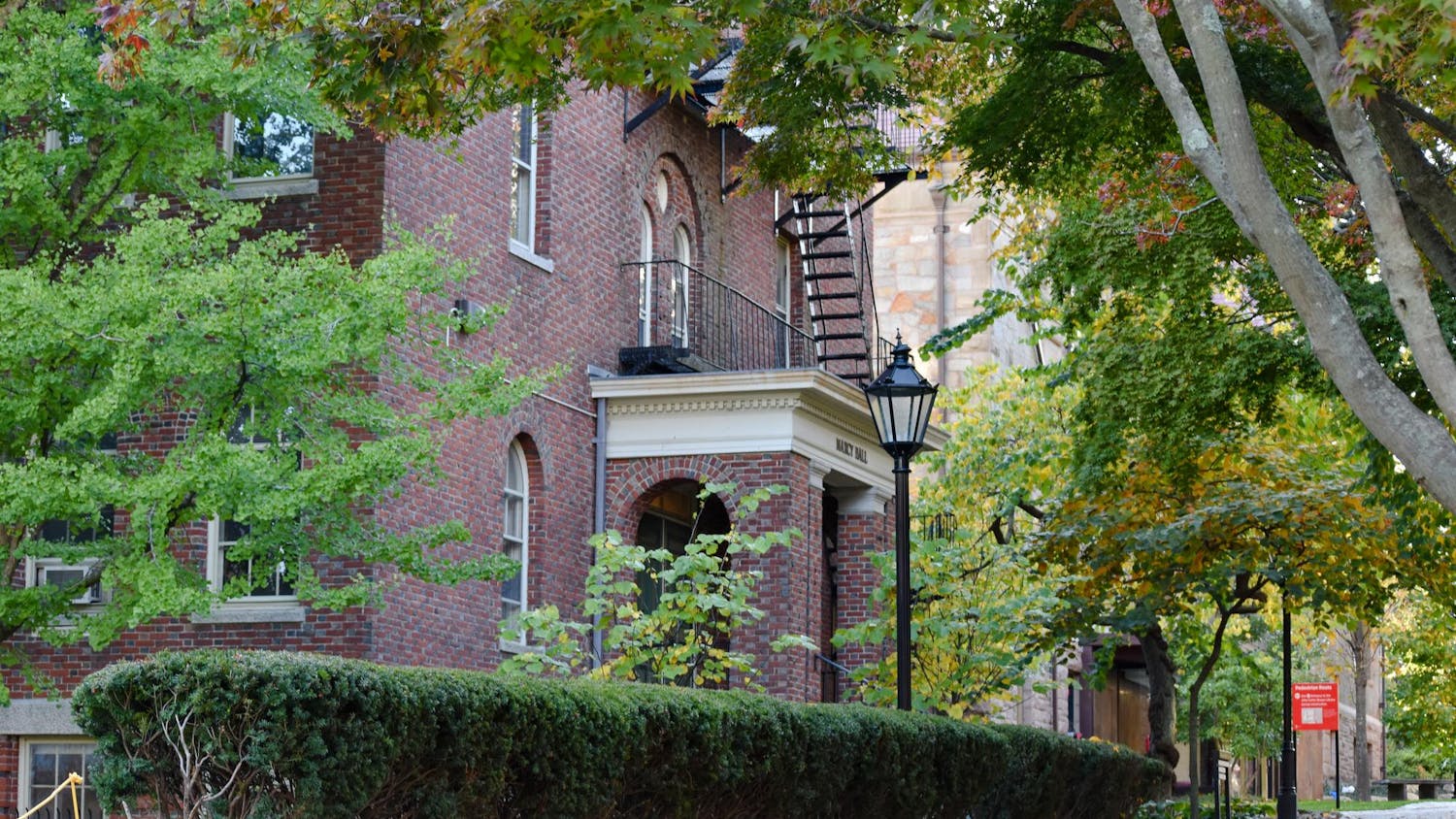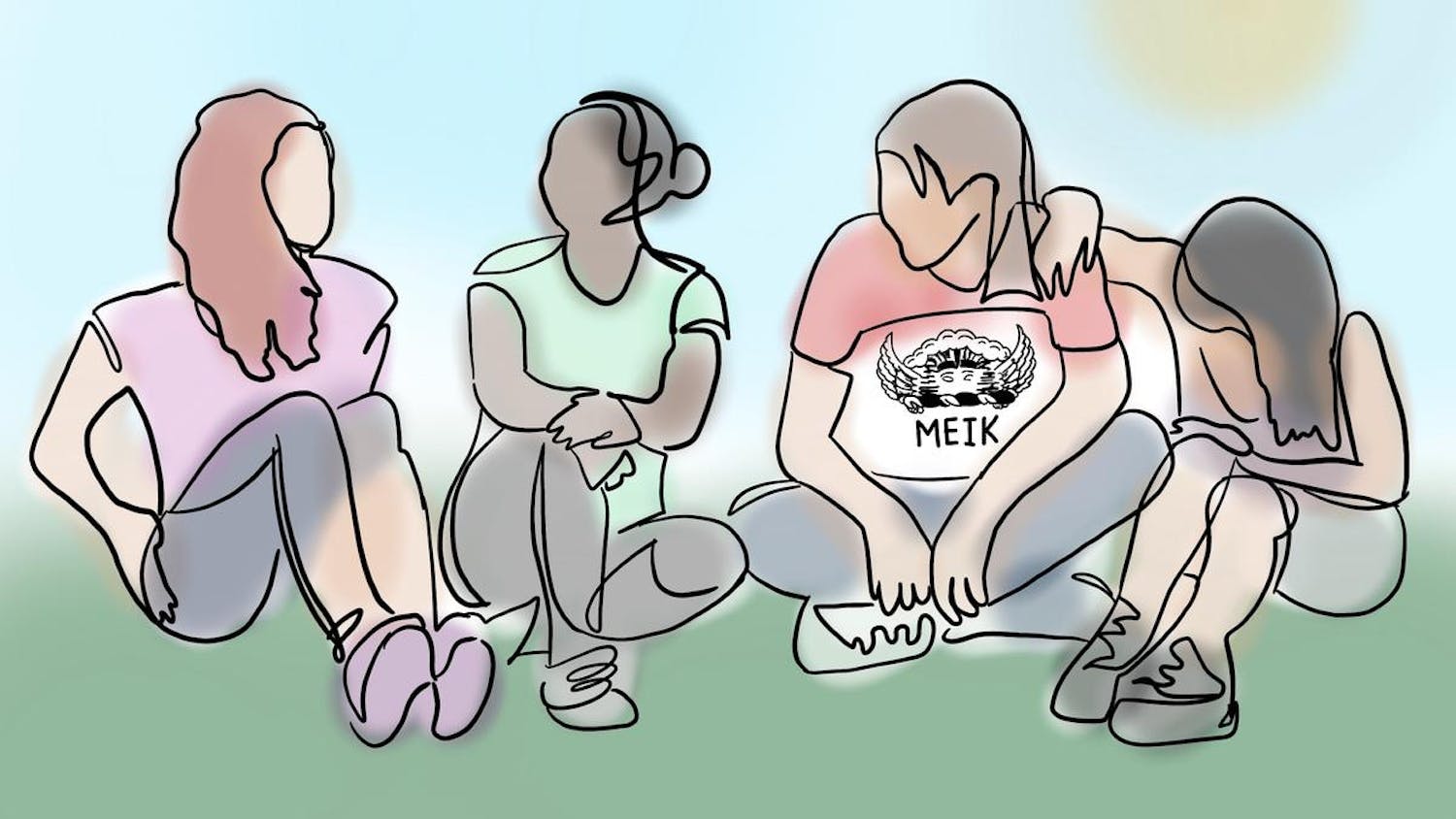The Brown University Community Council met Tuesday evening to revisit the issue of holding University events at off-campus venues engaged in labor disputes, look at suggested improvements to undergraduate housing and hear a presentation on initiatives and planning for the Swearer Center for Public Service.
Members of the Student Labor Alliance brought forward a resolution urging the BUCC to "encourage the Brown community to take all appropriate measures to avoid holding any events at venues in the midst of a labor dispute."
This was the first the BUCC heard of this issue since last April, after the annual gala was moved from the Westin Hotel at the last minute due to the hotel's questionable labor practices, said SLA member Haley Kossek '13.
The resolution identified groups, such as the Brown Sports Foundation and the Inman Page Black Alumni Council, which had changed venues for their events to union-supported hotels after SLA notified them of the labor disputes at the Westin. But the SLA sought to articulate a unified position because "it makes some sense to have some University policy" on the issue of labor disputes in off-campus venues, Kossek said.
Kathleen Sousa, manager of financial and administrative services for the Staff Advisory Council, said she agreed with the sentiment of the resolution but that the language needed "refinement." She also said she had questions of practicality, most notably with a part of the resolution that suggested "adding labor disputes to the standard cancellation clause in contracts for off-campus events and meetings."
The administration has been advised that "there will be no hotel" willing to agree to such a clause, she said.
Associate Professor of Africana Studies Corey Walker said he took issue with the resolution's broadness. "If you're asking the BUCC for a sentiment, a better way ... would be to say, ‘We support the Westin workers,' " he said.
Walker suggested that the resolution be reworked to focus specifically on the issue of labor practices at the Westin.
"The point is that there may be labor disputes at other venues where the University may want to hold events," said SLA member Julian Park '12.
"I would like to see something broadly addressing the issue," added Beth Caldwell '12, another member of the group.
A vote unanimously defeated the original resolution proposed by SLA. But the BUCC adopted Walker's resolution, which expressed support for the boycott of the Westin, and agreed to give the issue further consideration.
Vice President for Campus Life and Student Services Margaret Klawunn presented updates on planned improvements to undergraduate housing. The administration had started by looking into other universities' systems, such as Harvard's house system and the residential college model, before concluding that other systems were not right for Brown, she said.
But, she said, it was clear that improvements must be made in undergraduate housing. In the perception of incoming students, "we don't compare very well with our peers" in the area of student housing, she said. Among seniors, housing has consistently been one of the lowest-ranked factors in their on-campus experience, she added.
She detailed plans such as moving classrooms for first-year seminars and advising to the areas around freshman dorms.
Additionally, she discussed renovating several University housing buildings, such as 315 Thayer St. and Minden Hall, to expand capacity and create more suite-style living space. Renovations to 315 Thayer St. are slated to begin this summer and be completed in summer 2012.
BUCC member Michael Stewart '13 asked what the University was doing to make facilities more handicapped-accessible.
Klawunn responded that one of the aims of the renovations was adding features — such as ramps and elevators — to make buildings more accessible.
The University is committed to "preserving a range of options" for students looking for on-campus housing, she said.
Roger Nozaki, director of the Swearer Center, gave an update on the center's initiatives and planning.
Recent developments have included a series of seven fall training sessions for students involved in the community and the addition of a career adviser specifically focused on nonprofit careers — particularly relevant because 53 percent of the Class of 2010 went into jobs with nonprofits, Nozaki said.
"About 1,000 students" are involved in service through the Swearer Center, he said. "It's not just a one-shot thing," he said, adding that these are "ongoing, day-to-day programs."
In the future, the center is looking to expand its review process beyond the center's programs to independent student-run organizations such as Project Health and Brown Refugee Youth Tutoring and Enrichment, he said.
During the time available for community members to present broad campus issues to the council, Park raised the issue of the upcoming search for a new provost, following the announcement that Provost David Kertzer '69 P'95 P'98 will step down in June.
"It is absolutely crucial that the people most affected by that decision," specifically students, be involved in that process and serve on the search committee, Park said.
Kertzer said the Undergraduate Council of Students and President Ruth Simmons would discuss this issue in their next meeting.




